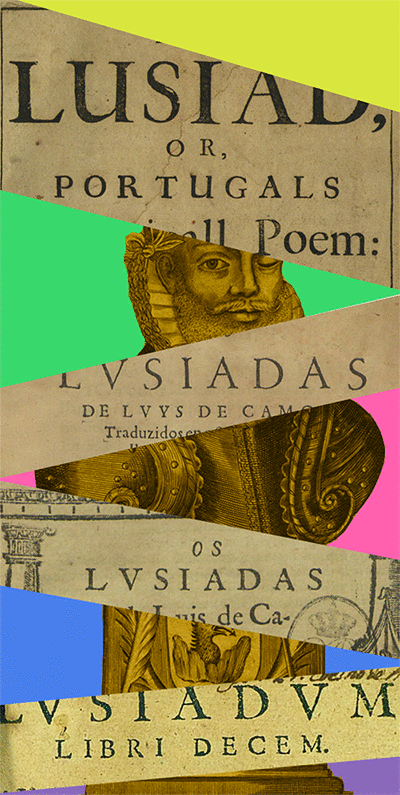This online bibliography brings together resources and scholarship to mark the 450th anniversary of the publication of The Lusiads (Os Lusíadas), the magnum opus of Luís Vaz de Camões (c. 1524/5–1580), an epic that “sings” the story of Portugal’s colonial expansion. Long revered as the most important work in the Portuguese language, it draws inspiration from Greco-Roman epics such as Virgil’s Aeneid and Homer’s Iliad and Odyssey as well as Persian and Hindu mythology. The ten cantos which structure the long narrative poem are in ottava rima and total 1,102 stanzas.
The Lusiads form a key pillar of an entire mythos constructed around nostalgia for the empire, though one that has received increasing critical attention in scholarly and political circles alike. Anthony Soares, for example, highlights the material and bodily violences that lie behind discursive elements of the text’s poetic cantos. Other scholars have traced the Persian and Indian lyric influences in the text (notably Hāfiz and Omar Khayyam), interpreting the national epic against itself. Some have even identified critiques of Empire, as well as satirical treatments of etymologies and ancestral pretenses, within the text itself, calling into question the poet’s own consent for his work to be interpreted as the uncritical pro-imperialist national epic, par excellence. As 2022 marks the 450th anniversary of its publication, new scholarship (see Camões at Harvard: Navigating 450 years of Os Lusíadas) will continue to critically resituate The Lusiads both in its historical moment and in Portuguese and global literature today.
We hope you make use of this bibliography which highlights resources in UC Berkeley’s distinguished Portuguese collection but also which provides access to open and freely available sources online.
Cameron Flynn
Ph.D. student, Romance Languages and Literatures
Claude Potts
Librarian for Romance Languages Collections
